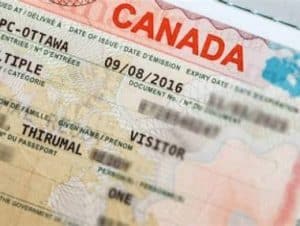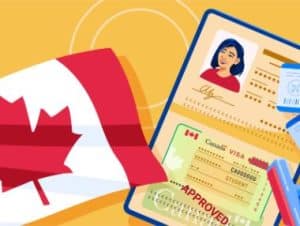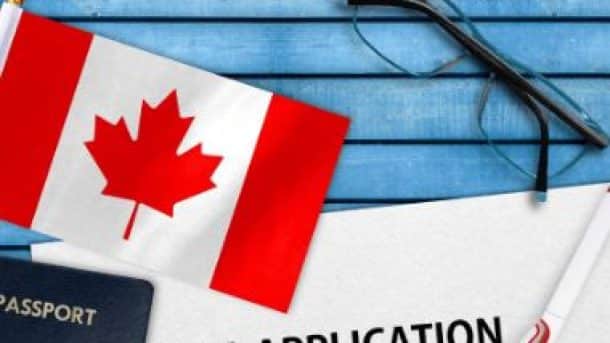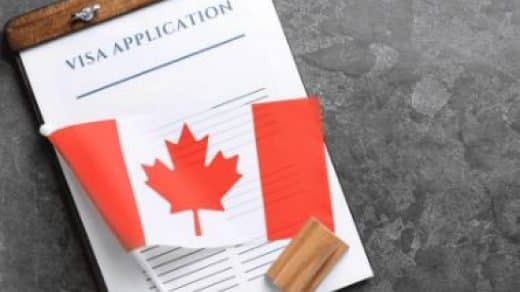Aside from being a renowned tourist destination, Canada is also appealing to students. It is a well developed country with excellent educational methods and prestigious degrees. That is why many individuals desire to enroll their children in Canadian primary or secondary schools, and adults prefer to begin their degree or graduate studies there. To do this, students must have a study visa and a study permission.
This post will go over the specifics of a student visa and study permit.
What is a Canada Student Visa?
A Canada Student Visa allows the holder to begin their studies in Canada. The student visa is similar to a Canada Visitor Visa or an Electronic Travel Authorization (eTa), but it also requires a study authorization. So the Canada student visa combines a visiting visa and a study permit, or an eTA and a study permit.
The Canada study visa only allows you to begin your studies in Canada at designated learning institutions (DLIs). The study permit allows you to stay in Canada until the end of your program and, in some situations, work while still in school or after graduation.
To keep your Canada student visa, you must meet the following conditions:
- Always enroll in a DLI.
- Continue to strive towards completing your study program.
- Meet the requirements for the student visa.
- Stop studying if you do not meet the student visa requirements.
- Once your study permission expires, leave Canada immediately.
The study permit will not allow you to get Canadian-issued documentation or government services, such as health care. If you want to apply for Canadian citizenship, this will make the process easier.
What is a Designated Learning Institution?

As previously stated, you can only obtain a Canadian student visa if you are enrolled in a Designated Learning Institution (DLI). DLIs are schools or universities that have been approved by their provincial or territory governments to accept overseas students.
All primary and secondary schools in Canada are automatically DLIs; however, many universities and other educational institutions are not accredited DLIs. You should not apply for those since you will not be allowed to attend even if they approve you.
To determine whether a university or educational institution is a DLI, use this link.It will direct you to the Government of Canada’s website, which is the official source for all Canadian visas. The page requires you to select a province or region, and it will generate a list of all DLIs. You can see if the place you want to apply to is a DLI or not.
If the institution loses its DLI designation while you are attending, you may continue to study there until your study permission expires. If your permit expires before you finish your degree, you must enroll in a new institution that is a DLI to obtain a new study permit
Who Needs a Canadian Study Permit?

All international students who wish to study in Canada and require a guest visa or an eTA to enter the country must get a student visa and permit. The permit itself does not allow you to enter Canada, but when combined with a tourist visa or eTA, it allows you to begin your studies.
However, some groups of persons may not require a study visa to study in Canada if they are in the following situations:
- If your study program in Canada lasts less than six months, you will only require a guest visa or eTA, not a study permit, as long as you complete the program in six months or less. If you cannot complete the short program in six months, you will require a study permission.
- If you are a family member or staff member of a foreign representative to Canada who is accredited by Global Affairs Canada, you do not require a study permit.
- If you are a member of the foreign military forces in Canada on official business, you do not need a study permit; however, your family members may require one.
- If you are a citizen of another nation with Registered Indian Status in Canada, you do not require a study permit.
- A study permit is not required if you are a minor child in Canada.
- In Kindergarten;
- A refugee or refugee claimant.
- If your parents are refugees or claimants,
- Going to pre-school, primary, or secondary school, and your parent is permitted to work or study in Canada.
Do I Qualify for a Canadian Student Visa?
To be eligible to apply for a Canada student visa and permit, you must meet the following requirements:
- Have a valid admission letter from a Designated Learning Institution (DLI) that includes the following information:
- An official letterhead for the school.
- The program and degree you’ll earn.
- The amount of tuition that you must pay.
- The start and end dates of the program.
- You must be at least 18 years old to apply as the primary student visa applicant, and your children under the age of 18 cannot apply on their own. So, if your child want to attend elementary or secondary school, you must apply on their behalf.
- Maintain a clean criminal record and provide court records to confirm it.
- You must fill out and sign the Visa Application Center (VAC) Consent Form.
- You must provide copies of your current immigration status in another country or Canada.
- Prove that your presence in Canada is transitory and that you intend to return to your home country once your studies are completed.
Canadian Student Visa Requirements

When you complete the forms, you must also submit the necessary supporting documents:
- Scan your passport to validate its validity.
- Your travel history, which includes scanning your entire passport to prove that it has blank pages.
- Letters from the court and police in your nation that confirm you have a clean criminal record;
- A Declaration Letter from you to the Government of Canada explaining why you should be granted a visa and study permit.
- Two images that meet Canada’s photo requirements.
- Medical exams.
- A resume or diploma can demonstrate your career or educational status.
- Proof that you can meet the expenditures of studying in Canada (tuition and living costs) in one of the following ways:
- You must have documentation of a Canadian bank account in your name.
- You must hold a Guaranteed Investment Certificate (GIC) issued by a Canadian financial institution.
- You must provide proof that you obtained a student loan from a bank.
- You must have bank statements for at least the last four months.
- You must provide documentation that you have already paid your tuition and housing expenses.
- You must have a letter from the person or institution who is giving you the money.
- You must provide confirmation that you have a scholarship.
- If you intend to study in Quebec, you will also need to present a Certificat d’acceptation du Quebec (CAQ) issued by the Quebec government. You will receive instructions from your school on how to apply for a CAQ.
- You must submit a statement explaining why you wish to study in Canada and confirming that you accept and understand your duties as a student in Canada.
- If a minor is traveling to Canada to study and requires a custodian who is not a parent, you must additionally submit a Custodian Declaration
- Form, which must be signed by the child’s parents or legal guardians.
- If you are applying for the first time, you will not be needed to provide a document number on the study permit known as a Unique Client
- Identifier. If you have previously applied for a study visa, you must include your study permit document number, which can be found in any correspondence you have received from the Canadian government.
- If your family members (spouse or common law partner, and minor children) are joining you, you must also prepare application forms for them and apply as a family.
All documents must be translated into English or French, and you must provide certification and confirmation that the translation is accurate. Once you have submitted all of the documentation, you can proceed to submit the application and pay the fees.
FAQs
Does the Canada Student Visa allow you to visit your home country?
The Canadian education system features numerous breaks between school years in the summer and winter. Naturally, many overseas students prefer to visit their home countries during these intervals.
The student visa for Canada allows international students to travel abroad on vacation; but, when they return to Canada, they must present verification of their status. They must present a valid visa or electronic travel authorization, as well as their study permit. Even if the study permit is valid, the visa or eTA must also be valid; otherwise, the student cannot visit Canada.So, before you travel outside of Canada, make sure your paperwork are in order and valid. If they are not, seek for an extension before your trip.
Can my family members accompany me to Canada?
Your close family, including your spouse or common-law partner and small children, can accompany you to Canada for studies. However, they must apply for their own visas (not study permits), which will be visiting visas. You can submit the applications together to inform the Canadian Consulate that you are a family and wish to remain together for the duration of your education.





